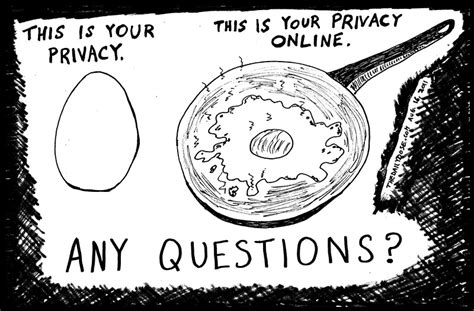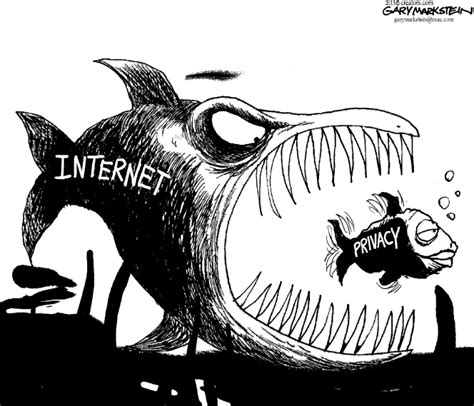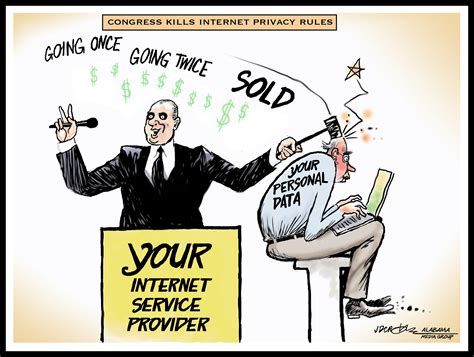Humans are curious by nature. In the digital communication era, we as a global population have become extremely obsessive in demanding free-of-charge information, delivered in real-time. We nourish data every day. However, nothing is free in life. Is it?
This non-stop, data traffic flow certainly comes at a cost. A cost that many are still sizing and don’t understand what it entails. To have access to this monumental size of data is extremely valuable with endless uses. You are required to share important information as well, and this is when your online privacy could be jeopardized.
Understanding Online Privacy
Privacy is defined as freedom from being observed or receiving public attention, or the ability of an individual to seclude themselves and their information. That applies to all kinds of scenarios, including the digital world. However, when it comes to digital privacy, most people find themselves confused about what it represents. I mean, how can we keep our privacy in a digital world that requires and demands information to operate efficiently?
Businesses try to acquire as much personal information about you as possible. Your behavior and online preferences are continuously tracked by companies looking to provide highly relevant information to your queries, tailored advertising campaigns, products, and services. The original idea was to provide a better experience to the user. However, this magnificent opportunity of access to people’s heads is well exploited by other entities, brands, governments, and of course, cybercriminals or hackers.
Even though collecting data, displaying it, selling it, or also providing it to third parties, all seem to be standard practices. They should all be and are trying to be regulated, which gives birth to concepts such as Internet privacy. Internet privacy is the right to keep sensitive data and information produced as a result of using the web, private.
In an ideal world, no one would have anything to hide, or no one would have to worry about protecting themselves from anyone else. Unfortunately, our world is far from ideal, and this means that we need to keep personal information safe from being used in the wrong way. The thing about the Internet is that to interact with most websites, some information is necessary.
When setting up an account on social media or on an e-commerce site to make online purchases, you are required to share specific information. Otherwise, the interaction would not be possible. That information is more than enough to harm you if it falls into the wrong hands. It doesn’t matter if you believe you are a minor or moderate Internet user. It takes one single web search or the creation of an email account, to leave your digital footprint.
How Vulnerable is my Online Privacy?
Internet privacy or online privacy is becoming a growing concern these days for users of all ages, all around the world. As the Internet continues to evolve, and the number of websites, online products, services, and special applications continues to expand, the full range of potential internet privacy issues grows exponentially. Ironically, people continue to daily share their personal lives on social media, losing the boundaries of how much they are exposing themselves.

ImageSource:http://www.redbubble.com/
There are millions of Internet users connected at the same time, all over the globe. Interconnectivity has brought incredible benefits to the world today. However, you don’t know who you might trigger online, and that’s when keeping vital, personal information private, is essential. We need to safeguard personal information such as financial data, medical records, home address, social security number, phone numbers, and much more, from being used against us or in a wrong way.
Internet Privacy – A Shared Responsibility
People need to understand that they and all of us must take ownership of our data security. Every individual is responsible for the privacy of their information and how much of it they decide to disclose. However, it seems that people aren’t aware of this. They mistakenly believe that the protection of their information is entirely responsible for the website, social media, or online business that they are accessing.

ImageSource:https://www.techonomy.com/
The responsibility of your online data privacy is a two-way street. Businesses have a great responsibility to handle customers’ information appropriately, use it strictly for the purposes requested, and not share it with third-party companies or individuals. On the other hand, users should also empower themselves in their data protection.
That is why it is vital to acknowledge your Internet rights. Even if they are not entirely defined, and the discussion about when, where, why, or the scope of these rights is still pretty fresh. The precedents have already warned us of the risks as cases of information become available. For example, the Equifax hack in 2017 compromised 143 million of American’s social security numbers and Facebook users’ records exposed on Amazon, and also Jullian Assange’s famous Wikileaks case. These are becoming more frequent and severe.
If you don’t take precautions towards your digital information, you could suffer a wide range of attacks and frauds such as Phishing, pharming, spyware, and malware. Through these and other strategies, cyber crooks can easily steal your identity, make unapproved purchases, or credit card frauds.
Spyware is designed as an offline application to build or obtain data without the user’s consent. When the computer is online, previously acquired data is sent to the spyware source. These are well hidden in your system and sometimes are hard to detect.
Through Pharming, hackers can redirect a legitimate website visitor to a different IP address. Once there, the user will be unprotected and will provide information to the wrong hands.
Phishing is an Internet hacking activity used to steal private information such as usernames, passwords, bank account numbers, security PINS, or credit card numbers.
Malware is an application used to damage computers either online or offline. Most of them are injected through trojans, viruses, and spyware.
Understanding Your Internet Rights
It is vital for any Internet user or business to acknowledge their Internet rights & responsibilities. When it comes to Internet rights and legislation, the European Union has taken leadership for decades. Even forcing significant corporations such as Google to pay considerable fines for not complying with their antitrust regulations. The GDPR or the EU General Data Protection Regulation, as its name suggests, regulates Internet rights and legislation in Europe, today. It was approved in 2016 by the European Union Parliament and enforced in 2018. It is designed to:
- Harmonize data privacy laws across Europe
- Protect and empower all EU citizens data privacy
- Reshape the way organizations across the region approach data privacy
Thanks to that, the EU can manage and regulate essential aspects such as subject data rights, condition of consent, the right to Internet access, data portability, privacy by design, and others. These establish fines and penalties of up to €20 Million, for those who do not comply with their regulations. That includes not only organizations located within the EU, but it also applies to those located outside of the EU if they offer goods or services to, or monitor the behavior of, EU data subjects. It applies to all companies processing and holding the personal data of data subjects residing in the European Union, regardless of the company’s location.
How to Protect Your Online Privacy
It is crucial to have a better understanding of how your data can be used against you, either by massive companies or cyber-criminals. Also being aware of the multiple potential risks, such as viruses or spyware that you could face while surfing the web or interacting on a social network. And having a better comprehension of your Internet rights. All these will allow you to empower yourself in controlling your Online Privacy, making smarter decisions when managing your data.
Be Smart with Your Personal Data
Remember that you have the right to decide how far you go when sharing your personal information. Be smart and safeguard the knowledge no one really should be interested in having. There is a wide range of single steps you can take that will help to keep your private data secure.
For instance: remember always to log out of websites and apps once you are done using them and avoid setting them to remember your user name and password. Avoid using public web providers and if so, avoid visiting bank accounts and similar. When shopping online, try to stick to well-known websites with high-security levels. Also, avoid posting your personal information such as private email, phone number, or home address. This data is vital to safeguard.
If you commonly use third parties’ public storage services to transfer or keep your information, highly consider the type of data you plan to save there. Under no circumstances should you keep personal data like passwords, IDs or passport scans, or other similar valuable documents.
The same goes for social networks. It is up to you how much you want to share or with whom you are willing to share it. However, it is quite easy to lose track of your social network posts. Therefore, it is vital to set up privacy settings. It is in the social networks’ nature system to collect as much data as possible. With such a size of information, the chances of a breach are incredibly high with massive consequences. It is recommended to stick with those contacts that you trust, even if it means losing a little popularity. Use little personal information and avoid sensitive details that could be harmful.
Go Beyond Internet Privacy

ImageSource:https://www.kenburridge.com/
The recommendations above are just simple and essential tips that every Internet user should consider when surfing the web or sharing their daily lives on social networks. Besides, you can take further steps in protecting your online privacy against illegal and compromising issues.
Search engines are a great and essential place to start if you want to use the web safely. According to Google, an average person conducts between 3 and 4 searches online, every single day. This search engine itself receives over 63,000 searches per second on any given day. The number of personal data companies and individuals can get access to via search engines is simply immeasurable.
As you search and surf the web, search engines and websites track your behavior to provide more relevant information to your queries, which is great. However, it can also be used for the wrong intentions. Look for the privacy settings in the sites and services you visit and try to keep them as private as possible. You can also use individual windows or incognito to avoid sites from tracking you.
You can also go further and try special private search engine services that won’t track your search history. There are several sites specialized in offering an individual experience as you safely surf the web.
Another excellent option to keep your Internet activity safe and private is by using a VPN or a virtual private network. A VPN will provide you with a private IP address, hide your real one, and make it will seem as if you are using another server. You can also encrypt the data you send.
Data Brokers
Up to this point, it should be evident to you how valuable your personal information could be for companies and Cyber Crooks. More data is easily translated into sweet money. Like any other asset or good, some companies make a living out of your data. That’s right; they sell your information.

ImageSource:https://www.scubaerie.com/privacy-policy/
People search for data providers, and data brokers have existed for a long time, even when most people are not aware of them. However, you can count on your personal information being there. Journalists, marketers, advertisers, lawyers, and obviously, hackers and scammers usually visit these sites. Their business is legit as they are sharing necessary public information.
The good thing is that you can ask and demand them to remove your personal information from their database and forbid them from sharing it. They are forced to respect your Internet privacy. Remember, you have Internet rights! To get your info out of their database, you have to submit a request, which might, by the way, be kind of complicated. There are several businesses out there that offer online tools to identify those sites that have your information and will proceed with the request submission for you.
Final Words
Keeping your personal information private is your right, but most of all, your responsibility. It doesn’t matter if you surf the web on your own, or you provide an online service. It is your responsibility to use and manage the information correctly and safely. Remember….cybercrime never goes out of fashion. It only evolves and gets better by each passing day. Someone is watching you!

